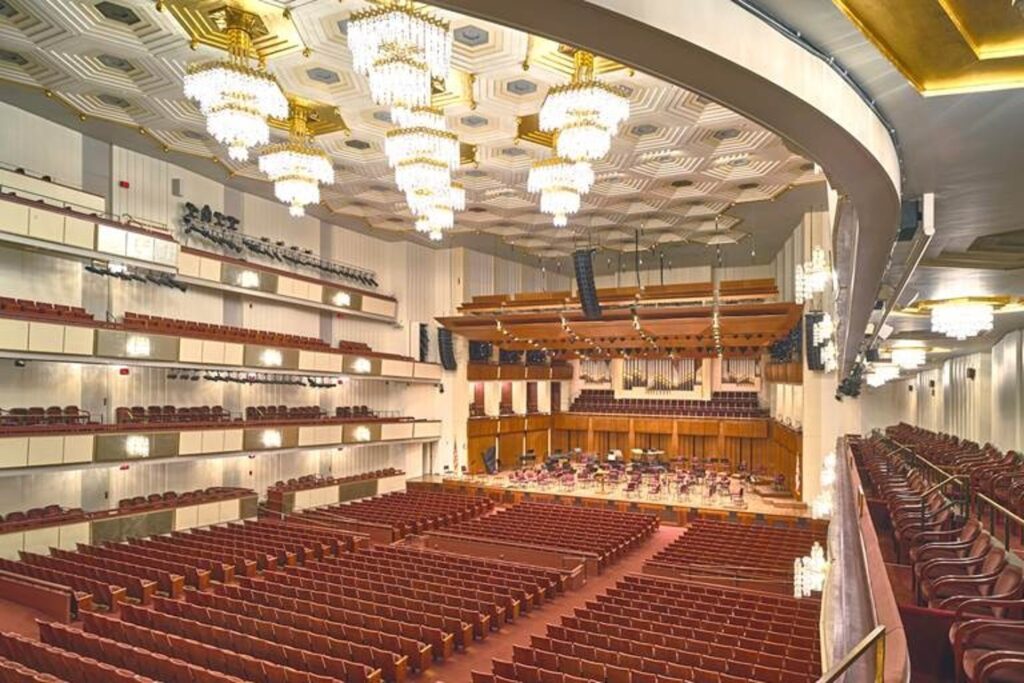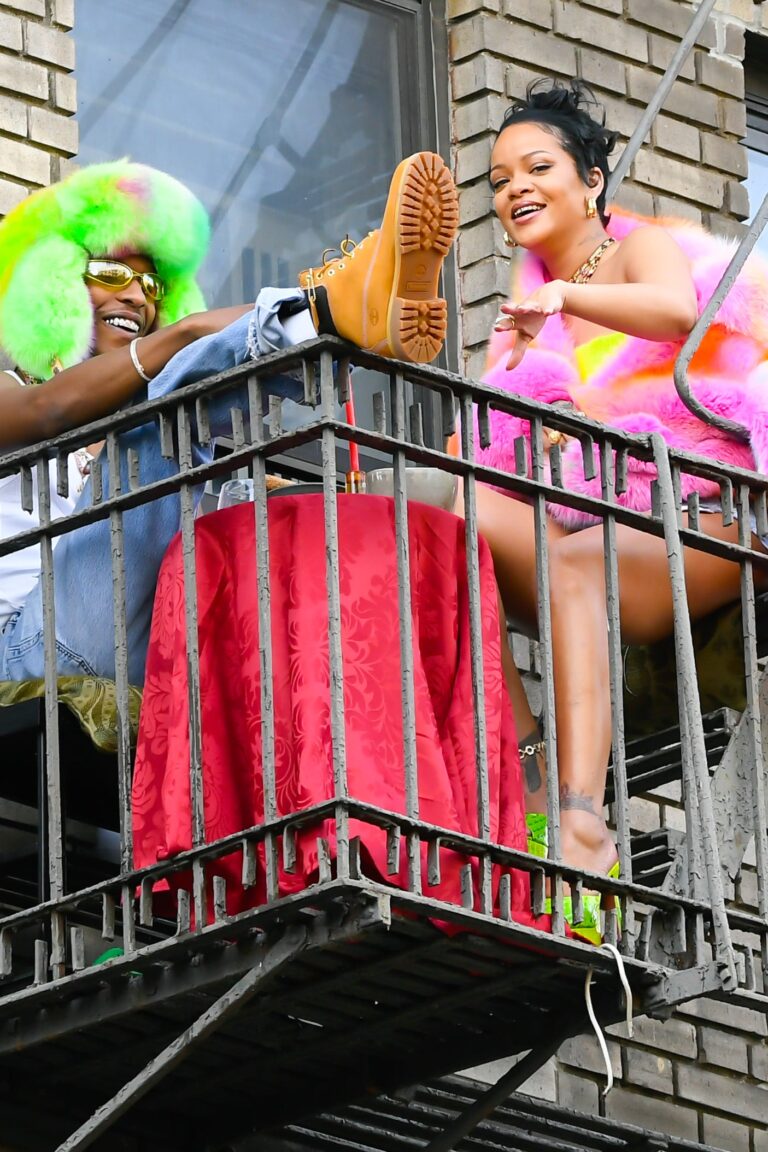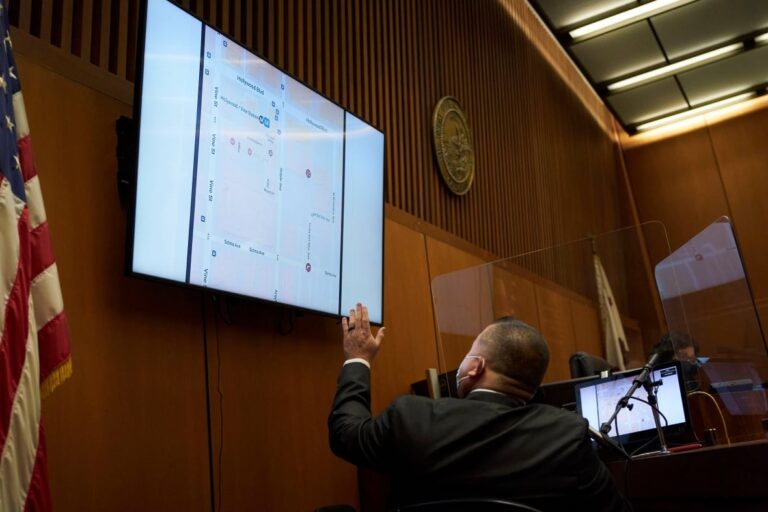
Audience
- Sentiment: Controversial
- Political Group: Liberal
- Age Group: 30-50
- Gender: Female
Overview
- Donald Trump dismissed the Kennedy Center’s board of directors, leading to a wave of resignations from prominent artists.
- Artists like Renée Fleming and Issa Rae took a stand against the new leadership, reflecting the intertwining of art and political beliefs.
- The situation raises broader questions about the role of art in society and how artists navigate political tensions.
The Shifting Landscape of the Arts: Trump’s Move at the Kennedy Center
If you’ve ever been to a concert, play, or ballet at a big venue like the John F. Kennedy Center for the Performing Arts in Washington, D.C., you know that it’s a place where art comes alive. From stunning performances to inspiring art galleries, the Kennedy Center has been a cultural hub for music, theater, and dance lovers. However, recent actions by former President Donald Trump have given this iconic venue a dark cloud of controversy. If you’re wondering why artists are upset and what it means for the future of this beloved institution, sit back and let’s dive into the story!
A Shocking Decision
In a move that surprised many, Donald Trump dismissed the board of directors at the Kennedy Center. Now, you might be wondering, “What’s the big deal about a board of directors?” Well, think of the board as a group of people who help guide the direction of the center, making important decisions about who gets to perform, what art is showcased, and how to promote the arts. When the board was let go, it raised a lot of eyebrows and stirred up a heated debate among artists, musicians, and theater lovers alike.
This dismissal didn’t just affect the people sitting in the board room; it rippled through the artistic community. What followed was a wave of resignations and cancellations from some well-known artists, showcasing the strong connection between art and political beliefs. For instance, a respected composer and conductor announced he was resigning from his advisory role at the Kennedy Center, stating that he couldn’t support the new direction being taken. Goes to show how deeply intertwined politics and the arts can be!
Standing Up for Values
One of the most notable showcases of solidarity came from opera singer Renée Fleming. She is an incredible talent who has performed at numerous prestigious venues globally. When she decided to step down from her position, it sent a clear message: she sympathized with her colleagues and believed in supporting the values that the Kennedy Center represents.
Artists like Fleming and others are not just performers; they are influential voices in society. When they choose to take a stand, it often makes headlines. And they have a right to feel passionate about these issues! It’s important to understand that performers see their work as more than just entertainment; it reflects their beliefs and values. Many feel that the Kennedy Center is a symbol of artistic excellence and cultural representation, so its leadership matters deeply to them.
Artists in Conflict
Amid all this turmoil, artists have had to make tough decisions about whether to continue with their scheduled performances at the Kennedy Center. Some, like actress Issa Rae, chose to cancel their shows. Rae is known for her work on hit television series and films. Her decision to withdraw was based on what she saw as a clash between the artistic ideals she cherishes and the new leadership’s values at the Kennedy Center. This is powerful because it underscores how individuals in the arts can use their platforms to communicate their discontent.
On the flip side, there are artists like musician Pierce who have decided to keep their scheduled performances. Pierce believes that music can be a powerful tool for healing and dialogue. He reflected on his family’s history and the challenges they faced, which inspired him to continue performing. By attending his concert, fans could expect not just a show, but a conversation—one that addresses tough social issues like civil rights and racial violence. It’s fascinating to think about how artists become conduits of change through their art, isn’t it?
The Power of Music
Consider this for a moment: music can influence emotions, change perspectives, and encourage conversations about critical social issues. Music isn’t just about catchy tunes or beautiful lyrics; it often acts as a mirror reflecting society’s struggles and triumphs. When Pierce takes the stage, he believes he is advocating for something bigger than himself.
A key moment in his act might focus on a song inspired by civil rights marches or maybe a ballad recognizing the struggle against racial injustice. In these songs, he encourages people to listen, think, and engage with one another, fostering open dialogue about important issues. This demonstrates that even amid controversy and confusion, art can still uplift and inspire change.
The Broader Conversation
Ultimately, the situation at the Kennedy Center raises questions beyond just who is performing there or who is leading it. It taps into much larger discussions about the role of art in society and how artists navigate a world filled with political tensions. As our culture evolves, the relationship between politics and art becomes more intricate.
On one side, art can reflect the political landscape, whether it’s celebrating the achievements of society or critiquing its failings. On the other hand, artists may feel they must take a stand to defend their values and the principles that govern the art community.
This whole scenario at the Kennedy Center showcases the struggling alliance between culture and politics in the modern world. Many people often wonder—how should artists respond to political decisions that might conflict with their beliefs? Should they cancel performances and take a stand, or continue performing to reach audiences and possibly create dialogue? It’s a difficult question with no simple answer, but one that encourages further discussion.
Conclusion: What About You?
As we reflect on this situation, it’s essential to ask ourselves how we engage with the arts and what we believe their role should be in society. Should artists have the freedom to speak out against decisions made by institutions they once respected? Or do you think they should focus solely on their artistic work, leaving political discussions to others?
We’d love to hear your thoughts! Have you ever felt inspired or upset by an artist’s decision related to politics? Do you believe art can indeed spark change and promote important conversations? Drop your comments below! Let’s discuss the incredible power of art and how it interacts with our world today.






